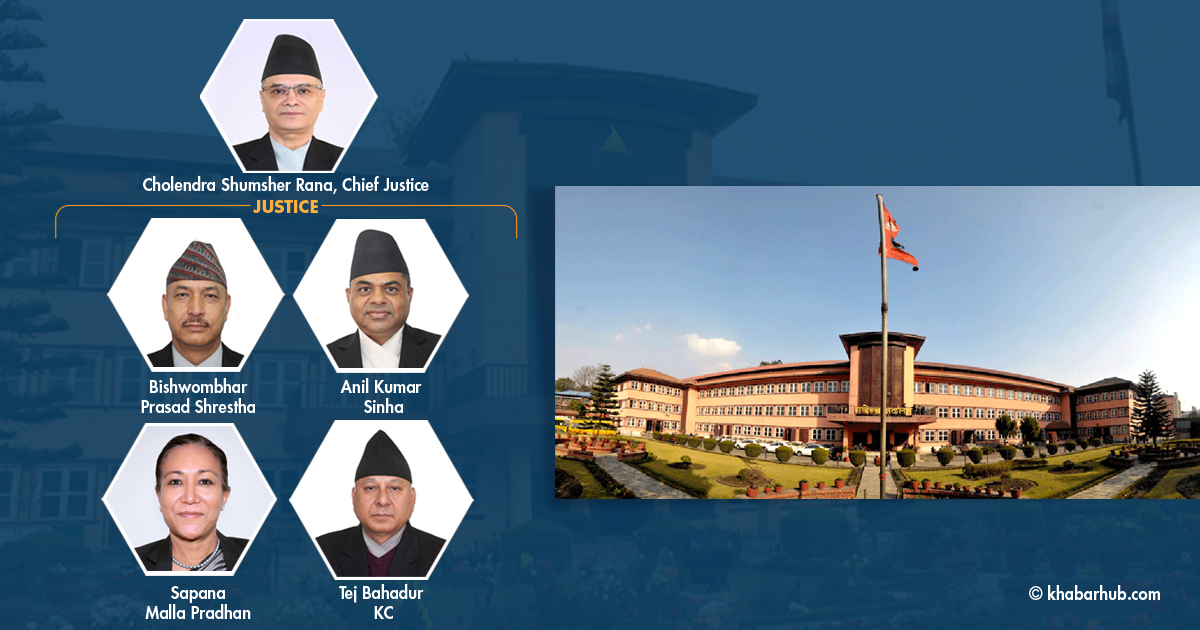KATHMANDU: The political phenomenon saw wild ups and downs in the last two months but managed to rebound as always. This time was somewhat different.
The verdict of the Supreme Court on 23 February in favor of the reinstatement of the dissolved House of Representatives (HoR) has given the Nepalese people renewed hope in the midst of uncertainties, speculations and disparate interpretations over the political direction of Nepal.
The SC in its verdict said that the decision of the Prime Minister to dissolve the HoR was against the fundamental norms, values and standards of the Constitution.
If the verdict is to be analyzed, the PM’s decision lacked certain precondition envisaged by the Constitution, and was against the fundamental norms and values of the Constitution.
Nepal’s democracy was in crisis. The values it embodies — as observers and civil society leaders viewed and analyzed — were under assault and in retreat. Nepali people watched the entire political gimmicks with increasing unease as the country’s political system was threatened going off the track.
Nepal was headed toward a deep political crisis following the dissolution of the House of Representatives by President Bidya Devi Bhandari on December 20, 2020, on the recommendation of the Prime Minister KP Oli-led cabinet.
With the SC’s verdict, the constitutional crisis has been over for now – or for the time being. If presumptions are to be considered, PM Oli, as a shrewd politician, can go to any extent.
Speculations were that the dissolution of the House would plunge Nepal into a constitutional crisis – first time after the promulgation of the Constitution of Nepal in 2015 — triggering suppositions that it may be the start of a bleak chapter in its prominent political history.
Some elements even tried to catastrophize the political developments while some interpreted another way round.
After two months of fresh political uncertainty, Nepal’s SC gave a historic and bold decision in favor of HoR reinstatement something that has been widely considered a correction to Prime Minister KP Oli’s “unconstitutional” move of dissolving the Lower House.
With the SC’s verdict, the constitutional crisis has been over for now – or for the time being. If presumptions are to be considered, PM Oli, as a shrewd politician, can go to any extent.
However, the verdict has saved Nepal from plunging into political and unconstitutional uncertainties.
To recall, PM Oli’s move triggered political unrest within the Nepal Communist Party and protests on the streets of Kathmandu and elsewhere.
The dissolution of the HoR came after months of intra-party wrangling and a bitter power struggle between PM Oli and another Chairman Pushpa Kamal Dahal “Prachanda”.
The way out of any political impasse is to safeguard democracy and defend the right of all citizens as Nepalis and the political parties here have taken some important steps toward the creation of an inclusive democracy that is worth defending.
Political analysts note PM Oli’s move triggered a constitutional crisis as the PM cannot recommend the dissolution of the HoR until there are possibilities of forming an alternative government.
Moreover, there were apprehensions that the dissolution of the House could lead to a phase of renewed political instability and Nepal’s democracy at risk.
Political leaders close to the Prachanda-Nepal faction of the NCP, and independent observers said Nepal could face a democratic backsliding.
The SC’s verdict has also increased the people’s trust in the independent judiciary at a time when people were not too optimistic in such a context of extreme polarization.
Therefore, the way out of any political impasse is to safeguard democracy and defend the right of all citizens as Nepalis and the political parties here have taken some important steps toward the creation of an inclusive democracy that is worth defending.
People concerned about the threats facing Nepal’s democracy need to commit themselves to protect their democratic institutions. And not to forget that the stakes are high.









Comment